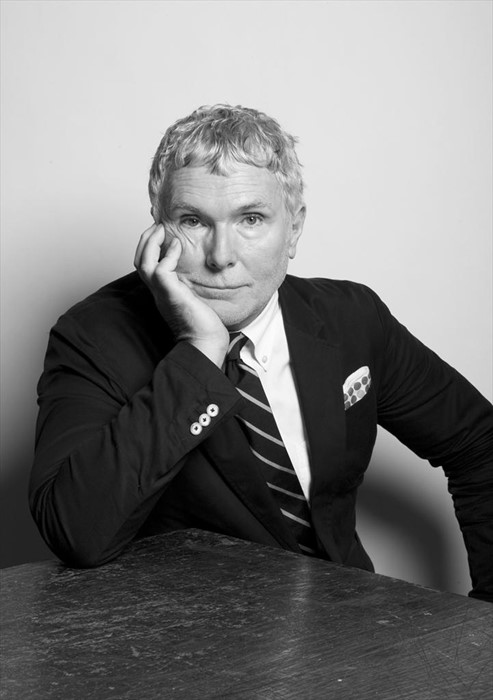Glenn O’Brien is the closest we can get today to a Renaissance man: after graduating in Classics from Georgetown University, he became a music critic at Andy Warhol’s Interview, while being a member of the Factory...
Glenn O’Brien is the closest we can get today to a Renaissance man: after graduating in Classics from Georgetown University, he became a music critic at Andy Warhol’s Interview, while being a member of the Factory. He has worked as an editor for numerous publications, notoriously forging the term editor-at-large when serving for High Times Magazine. His writings encompass all field of contemporary culture, from art to music to politics, on which he is currently preparing a book. In fashion, he has writen for Allure, Harper’s Bazaar, and has held a position of creative director of Advertising at Barneys New York. He is the author of the legendary monthly column for GQ Magazine and of the book The Style Guy.
How would you connect fashion to elegance?
Elegance is a quality that can be found in fashion, but it is really more related to style. Fashion is a group sensibility and style is an individual sensibility. So usually elegance is about a manifestation of individual style.
What is the role of history and art history in your conception of fashion?
I don’t think art history is related to fashion. Certain moments in art leak into fashion, like pop art. But I don’t think fashion is a reading of art history or that it even knows anything about it. People who work in fashion absorb things almost through their skin or directly through the senses, instead of being processed by reasoning. The way fashion takes in its subject matters is kind of osmotic.
Would you describe fashion as a language and a discourse, as Barthes did it?
There are at least two kinds of languages: languages that are spoken and languages that are spoken and written. I suppose you could say that fashion is like a language that is spoken and not written. It is a system of signs but their meanings are relatively fluid.
The word "intellectual" was coined in a time of great political distress. Does fashion have a political role? And in which way?
After the fall of the aristocracy, people needed to be able to express temporary structures of status. And here comes fashion, which is primarily about status signifying.
"Fashion is quite superficial, whereas style goes to the deep heart of things. Style is the last thing to go"
How would you relate the concept of fashion to the one of style?
Fashion is about large groups of people, and it is also about power: fashion usually follows someone’s style. People who are in fashion see someone stylish do something, and then they mass produce that gesture on the next level and it spreads down the pyramid. By the time it reaches the bottom it has been abandoned by the stylish originator and the first generation of imitators. So fashion is about conformity, and style is about non-conformity. Fashion is quite superficial, whereas style goes to the deep heart of things. Style is the last thing to go.
What does fashion have to do with intellectuality?
Nothing.
You have played a major role in shaping the idea of man’s style. What difference would you see between men’s fashion and women’s fashion?
Now men’s fashion is becoming more like women’s fashion. For many reasons. One is that men are less pressured to be masculine in the conventional sense. They can express a broader range of identities so they can more easily participate in fashion, in a way that would have been impossible not so long ago, when overt consciousness of one’s appearance was taboo. Nonetheless, women still are more devoted to the nuances and the quick changes that occur in fashion. Even if they can focus on certain details – the length of a jacket, for instance – men do not really care about the runway so much. Their time frame is longer. Women want to be fashionable up to the minute.
You are a leading critical voice on today’s culture. What is the relation between fashion and culture?
Fashion is one of the most important forms of cultural production. What’s more, it obviously uses cultural symbolisms. Sometimes people use the expression "pop culture" to diminish contemporary expression, but pop culture is simply living culture. Culture is culture, and fashion is a big part of it.
In two weeks Donatien will be interviewing the photographer Philip-Lorca DiCorcia.
